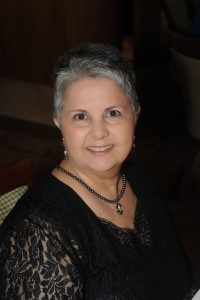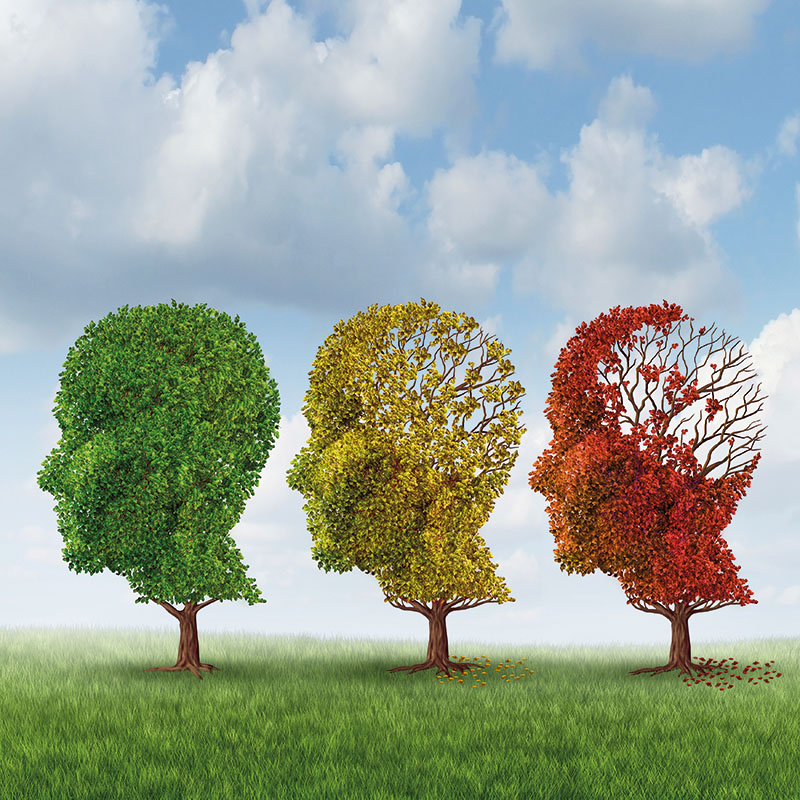
Most people understand Alzheimer’s disease as a problem of “forgetting” – a memory problem.
But it is much more than that; it is a thinking disorder, one that disrupts the usual patterns of thought conception, storage, retrieval and utility. As such, it may rob the person of a skill that was, up until today, an everyday action, taken for granted until now. This is something I would want to know if I myself had Alzheimer’s disease but, I don’t; my husband, Jay, does.
Learning about the disease is different for each of us. He lives with Alzheimer’s; I walk beside it.
Almost every week, there is something I discover that Jay can no longer accomplish. It moves from his to-do list over to mine and, over time my list will become overwhelming, that is a predictable truth.
There is no way to determine the trajectory for this disease, so Jay’s accumulation of inabilities may be slow or fast, and will likely be a fluctuating tendency rather than a straight line progression. That said the challenges that his diagnosis presents in our lives are significant.
Almost every week, there is something I discover that Jay can no longer accomplish
Jay is 83 and only at the early stages of the illness, there is much more disruption to come, should he live into the later stages of Alzheimer’s. But this is an essay about me, his partner, living with him through the horrifying reality that his brain is deteriorating, right in front of us. Little pieces of it are missing and, on any given day, it is unknown what he will or will not be able to do, say, think or manage.
First Signs
My first indications that something was wrong came several years ago, long before his formal diagnosis. I began to see behaviors that were inconsistent with the man my husband is and has been all his life. We’ve been married only since 2002, but we’ve been in each other’s lives since 1983 and the friendship we forged long before we were formally a family has given us a profoundly solid foundation for the earthquakes that are everyday occurrences in the lives of those with Alzheimer’s disease.
My earliest journal notations about a change in Jay’s behavior come from 2011 when I wrote in my journal, “He has not closed a business deal since before his heart surgery in November. Essentially, he’s retired – but he can’t bring himself to let anyone know – he still talks about being in business. He’d have to pass two certification tests if he wanted to keep the business open, but that just isn’t going to happen”!
Later, I would make notations like, “We visited Jay’s son’s family last week. Jay drove to their house and totally missed the turn off of Highway 5; I drove home” and “His ability focus is gone. I see him spending his time making lists – sometimes lists of lists. Each time he picks up the newspaper, he is essentially starting over as if he’d not read any of it earlier that day.”
The deficits were painfully obvious but still, there was no diagnosis. Jay had been diligent about seeking periodic neuropsychiatric testing on his own since the mid-1990s if only to assure himself that he was not going the way of his mother, who died with Alzheimer’s disease. Needless to say, the tests (that took hours at a time) all came back negative – to the experts he showed no clear deficits uncommon for a man his age.
Choosing a Worldview
In everyday conversation we can see the reflections of common worldviews; this is even more obvious when we humans encounter difficulties. Then, the volume is dialed up on our vocal descriptions of how unfair the world has been to us. The lenses we use to see our circumstances can color or cloud what is genuinely happening. Too often we “awfulize” about life in general, focusing on the dreadful, the terrible and the awful things we find or that find us. Illness brings huge opportunities for “awfulizing.”
For me, the possibility of thriving with this disruptive disease in our lives emerges from a concept that Norman Vincent Peal popularized in the middle of the 20th century under the title “The Power of Positive Thinking.” It was reiterated a few decades later by the televangelist, Robert A. Schuller in his works on “Possibility Thinking.”

Most recently, this concept shows up as Positive Psychology in the popular writings of Shawn Achor who authored The Happiness Advantage (2010) and Before Happiness (2013). Some assume it is simple optimism but I believe it is richer than that. I see it as an approach to life that reinforces values that Jay and I share.
If we believe that our lives are significant and purposeful, we can share personal growth experiences even in the middle of negative events and circumstances usually seen only through the lenses of scarcity, failure or shame. We do this by transforming, not the events and circumstances themselves, but how we think about them each day. This enables us to see them as amazing bearers of creative energy and optimistic possibility. This is the platform from which we can thrive even through Alzheimer’s disease.
How can we be Happy?
I firmly believe that happiness is a choice. I try to tell my grandson that whenever I catch him sulking over things he can’t change and can’t control. I don’t think I have convinced him yet. I often ask myself, “What do we have to be unhappy about”? And, under ordinary circumstances, the voice in my head might urge me to complain.
Certainly there are bills that go missing because Jay has tucked them away somewhere, the wallet that was “stolen” only to turn up two days later in the lost-and-found at the fitness center and the taxes that went unpaid because I didn’t know we owed them, since the bill came in his name only. One could certainly be unhappy about such things. But these are, in the big scheme of things, really just inconveniences, annoyances, trivialities.
We haven’t hit the BIG markers of brain disease yet – wandering outside on a dangerously cold night, losing the names of those he loves or forgetting exactly how or when to use the restroom, but those events are likely coming.
Whenever we hit a snag, I try to remind myself, “he’s doing the best he can, and so am I.” Adding that last part is the hardest thing to do because like most spouses, I am quick to recriminate myself when I lose patience with the situation or with Jay.
Health Amidst Disease
If the diagnosis were to disappear, would we find ourselves healthier as individuals or a couple? I think not because the absence of disease is not health and most of us are looking for health. Health is also very much a state of mind. The lenses we choose to view the world can allow us to be positive as well as negative and modern neuropsychology is telling us that every aspect of the brain functions better when those chemicals of positivity (dopamine, serotonin) are flowing in our neural soup than when we’re in a negative state.
The key to health is finding ways to urge those endorphins out into the open so that health, or a positive worldview, is possible even in the middle of other, more typically negative circumstances like illness or disease.
Crum, Slaovey and Achor (2013), traced the work of Becca R. Levy, an epidemiologist who has published with several teams of colleagues. In summarizing Levy’s findings they noted:
Individuals who hold onto negative mindsets regarding their own aging are much less likely to engage in self-care measures like healthy eating, taking time for exercise, and keeping primary care appointments (B. R. Levy & Myers, 2004).
People with negative mindsets, when reminded of common negative stereotypes of aging, also experienced a sense of hopelessness and measurably reduced cardiac function (B. R. Levy, Slade, Kunkel, & Kasl, 2002).
Subjects with a negative mindset also die earlier than their counterparts with a positive mindset (B. R. Levy, Hausdorff, Hencke, & Wei, 2000).
Levy is clearly onto something, and Crum and colleagues (2013) make the case that to fare well in the midst of difficulties “people may not need to focus single-mindedly on reducing their stress” but instead if they focus on the “enhancing aspects of stress (as opposed to merely preventing the debilitating ones)” they may discover great benefit from changing their mindset.
That is what we are determined to do, focus on the “enhancing aspects of the stress” that Alzheimer’s disease imposes on our lives and our lifestyle, thereby seeking out the best consequences of our lot, better overall health and a happier life in spite of Alzheimer’s intrusion.
The Road Less Traveled
To that end, we have actively begun to do some things we might never have gotten around to if Alzheimer’s disease had not insinuated itself in our lives. We do these things because they help – they make the sadness of the losses more palatable and the recognition of the disease’s progression less painful.
Our simple formula for life well-lived is this:
We exercise Jay more than I because he has more time and because he derives pure joy from the strength-training exercises he does for hours two or three times each week.
We reminisce Mine often takes the form of journaling; Jay’s comes out in conversation especially as we look at the many pieces of art in our home that tell the story of places we’ve visited, interests we’ve shared and people we’ve been privileged to know.
We meditate Jay is more religious than I, so his quiet time takes the form of prayer. Mine is the more traditional meditation with a focus on breathing and quieting the mind. Either way, the effect is calming and beneficial.
We spend time together Sometimes, just in each other’s presence, but often we intentionally do things together that could be done separately because it is beneficial to actively look after each other, and yes that action still goes both ways!
We express gratitude Especially to each other (people frequently comment that rarely do they hear “please and thank you” as much as when listening to us banter in the kitchen), we really do try to be courteous to each other and to everyone, acknowledging that sometimes even we miss the opportunity to be gracious.
We enjoy doing random acts of kindness This has become a little “game” between us. Jay will spot a neighbor walking her dog on a hot summer’s night and invite her to join us for a beer on our porch. I might see a colleague at work suffering the effects of a newly emptied nest and invite her to join us for dinner. It is random, but always intentional.
Our Future
It isn’t rocket science. This disease will inevitably make our lives harder. It will rob him of his memories, his capabilities and his dignity should he live that long and ultimately it will take his life. It has already robbed me of my partner, the man I trusted to pay the bills, manage the taxes and care for the car.
He can’t do those things any more but we’re intent on focusing on the CANs in life, not the CAN’Ts. This is the road to happiness, the path to peacefulness and the only way I know to thrive, even with Alzheimer’s in our lives.
References mentioned by Paula
Editor: We don’t often include references in an article as this isn’t a journal. In this case, however, we decided to include them as they will be of interest if you interesting in reading them.
Achor, Shawn (2010). The Happiness Advantage. Random House. New York, NY.
Achor, Shawn. (2013). Before Happiness. Crown Publishing Group. New York, NY.
Crum, A. J., Salovey, P., & Achor, S. (2013). Rethinking stress: The role of mindsets in determining the stress response. Journal of personality and social psychology, 104(4), 716.
Peale, N. V. (1996). The power of positive thinking. Ballantine Books; Reissue edition (August 1, 1996).Random House.
Scheier, M. F., Carver, C. S., & Bridges, M. W. (2001). Optimism, pessimism, and psychological well-being. In Chang, Edward C. (Ed), (2001). Optimism & pessimism: Implications for theory, research, and practice. , (pp. 189-216). Washington, DC, US: American Psychological Association, xxi, 395 pp. doi: 10.1037/10385-009
Schuller, R. H. (1986). Move Ahead with Possibility Thinking. Jove.

Paula S. Forté is a Registered Nurse and PhD with nearly 40 years of experience in nursing practice, education and administration. All of which will serve her well as dementia care has become the focus of her own household. Paula has published several articles in her field but now also writes about every-day life issues in the hope of reaching a broader audience.
She continues to work as an education specialist in long-term care and manage the changing landscape of every-day things with the love of her life, and husband of twelve years, who is 20+ years older than she and was diagnosed with Alzheimer’s disease in September of 2013. His symptoms began several years before his diagnosis. He is currently in stage four and while the direction of his health trajectory is clear, the velocity is not. They live together in the suburbs of Minneapolis, MN.

